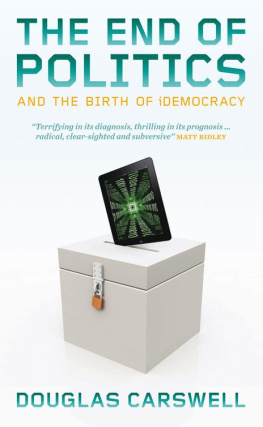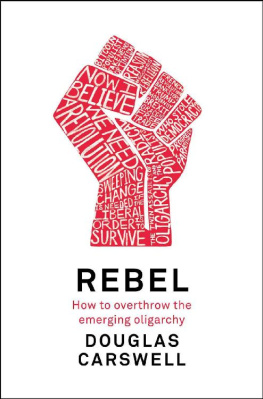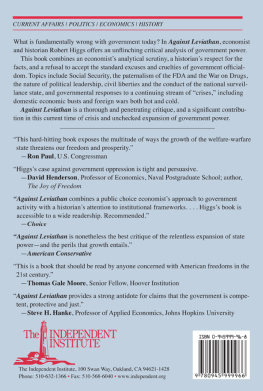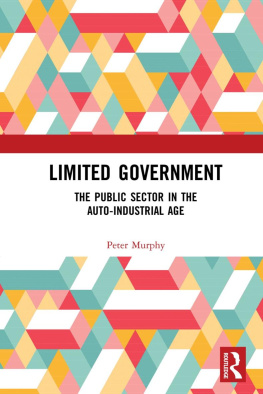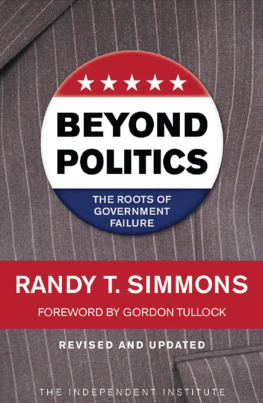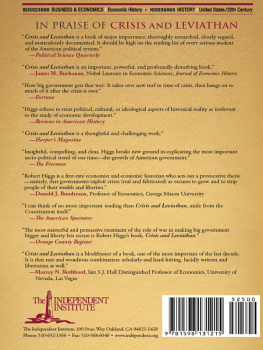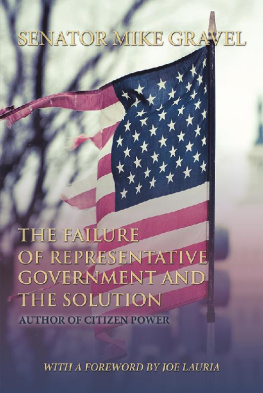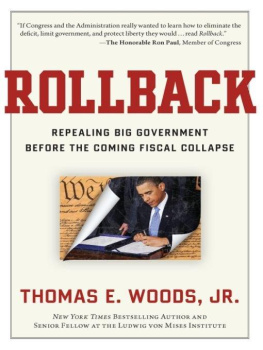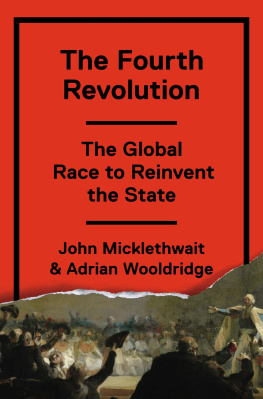D ouglas Carswell is a prolific writer, blogger and commentator. After careers in both broadcasting and fund management, and losing to Tony Blair as the Conservative candidate for Sedgefield in the 2001 election, he was elected to Parliament in 2005. In 2009, Douglas was nominated a Briton of the Year for his campaign to bring change to Westminster and voted Parliamentarian of the Year by readers of The Spectator.
Born in 1971, Douglas lived in Uganda until his late teens. He retains a close interest in the country he used to call home. He read history at the University of East Anglia and Kings College, London and now lives in London and Essex with his wife and young daughter.
T he West is broke. In Britain, America and most of Europe, governments have spent so much that entire countries face bankruptcy.
In 2010, the American government spent $1,900 billion more than it collected in tax. A year later, the US government borrowed $100 billion each month just to pay the bills. For every $5 it spends, the US government is in effect putting $1 on a public credit card. With approximately $15 trillion (twelve zeros) already on the credit card, it adds up to a pretty big bill.
The average American earns almost $70,000 a year, meaning that the United States appears outwardly wealthy. But as Charles Dickenss character Mr Micawber understood, prosperity is the difference between what you have coming in and what you have going out.
Against that $70,000 annual income, every American is liable for $131,368 of public debt, plus a further $1,031,131 to pay for all those unfunded promises their government has made.
If you thought America was mired in debt, take a look at Britain and Europe.
Britains total public and private debts are proportionately even bigger at more than five times her entire annual economic output. In Spain, France and Italy, total debt is between three and four times annual output.
Public debt in Greece is 132 per cent of output, Italy 111 per cent, France 90 per cent, Ireland 85 per cent, Germany 83 per cent, Britain 81 per cent and Spain 71 per cent.
Rich Western nations now have such large public debts they are in danger of growing poor. Like a runaway credit card bill, once debts reach such levels, the interest payments on the debt begin to grow faster than they can be paid back.
Greece, Italy, Spain and Portugal have reached this stage which is why, for the first time since the Second World War, private lenders have stopped lending to them. Other countries have had to step in to bail them out.
The US government debt interest bill already means that every US citizen faces the equivalent of $11,000 in interest payments alone each year. Total debt payment on all American debt will be $50,000 per family by 2015.
There comes a point when debt not only becomes unmanageable, but begins to sap prospects for future growth. We are at that point.
Faced with runaway debts, governments begin to confiscate ever more wealth to pay for bloated state bureaucracies. Higher public spending designed to produce missing growth brings forth only more debt. Cheap credit is sluiced towards overconsumption and bad risks, producing still more debt.
The result is both relative and perhaps even absolute economic decline.
In 1990, the West accounted for over 80 per cent In the West, by contrast, just about the only things growing are debts and taxes.
A stagnant West has been maintaining her living standards by borrowing off the dynamic, productive non-Western world. Already living standards in America are lower today than they were a decade ago. In Britain, living standards have fallen for three successive years, as they have across much of Europe.
Within the space of a generation, the West has gone from a position of global economic pre-eminence to bailout beggar.
What went wrong? How did the West end up in such a mess?
The West is broke financially because Western democracy has failed politically.
Western democracy used to be shorthand for a system of limited government. Each in its own way, Western democracies kept authority accountable, the demands of the governing tolerable and the taxes they imposed on the governed bearable.
The West is in debt because Western democracy has not been alive to the task of keeping government small. It has failed to rein in officialdom, allowing limited government to give way to Leviathan.
Throughout the West, legislatures have been sidelined . Public policy is made with little reference to the public. Of course elections still happen. Parties and candidates still run for office. But as a process for deciding how we are governed, none of this much matters. Elections no longer really decide what governments do. Unsurprisingly, fewer people bother to vote.
Socialist-leaning France has a very different kind of electorate, you might imagine, compared to proudly individualistic America. Perhaps. But while it is forty years since France last ran a budget surplus, it will be many years before America does so again. Setting aside what voters vote for, it turns out that both France and the United States are as bust as one another, each brought low by big, bloated government.
Democrat or Republican, Gaullist or socialist, Conservative or Labour regardless of who holds office, it seems that those who wield kratos, or power, in Paris or Washington, are no longer accountable to the demos, or people. And no longer reined in, Western government has grown and kept on growing.
However Western electorates seem to vote, they all seem to be presided over by the same kind of technocratic , managerialist elite. In Europe or America, central bankers make monetary policy. Treasury officials make tax-and-spend decisions. Judges decide the rules for welfare. An international mandarinate sets trade rules.
Unanswerable to the public in whose name they formulate public policy, those with the kratos have proved susceptible to all kinds of passing intellectual fads. From the idea of European monetary union to the notion of federal subsidies for Fannie Mae, experts and officials have been able to reinforce public policy failures long after they might otherwise have changed course. The result has been an endless succession of catastrophic public policy choices. Without outward accountability, the West is extraordinarily badly governed.
Throughout the West, government has overreached itself, doing too much, at such expense and doing it so badly that the Western model is now in crisis.

